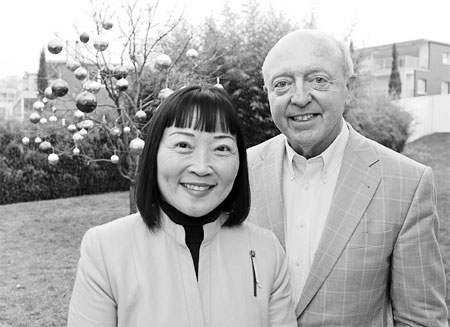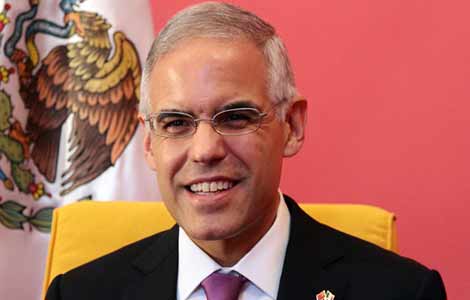Watching China emerge into light
Updated: 2013-09-20 16:12
By Fu Jing and Xie Songxin (China Daily)
|
||||||||
Hans Boller shares his personal findings on Chinese culture and development
Following a night-time arrival into the blackness of Beijing in 1976, Hans Boller has dedicated himself to telling the world about China
"It was dark," said Hans Boller, describing his memory of first arriving in Beijing in 1976, a few weeks after Mao Zedong's death. The only thing illuminated outside the window of his Swiss Airlines flight was Chairman Mao's portrait. And the darkness continued beyond the airport, as he was driven along small roads in a car with dim lights to his accommodation. When he woke the next day and stepped outside, he found he was in a land of bicycles.
Born in 1947, Boller grew up in Switzerland and studied economics and social sciences to PhD level at the University of Zurich. On graduating in 1976, he was curious to learn about China, and took up a job teaching Chinese engineers at a university in Beijing.
He was surprised to find that his monthly salary of 480 yuan ($77), a tenth of that earned by his Swiss peers, was equal to Mao Zedong's salary and to the annual income of an average urban Chinese family at the time.

"I didn't care how much I earned but treasured the opportunities to have historic experiences," recalls Boller, 66, in his two-story home on a slope facing the picturesque Lake Zurich.
Christmas decorations are still up in the house well past the festive season and Boller's wife says it is a tradition to keep them up until after the Spring Festival (Chinese New Year). To the left of the Christmas tree is a miniature Chinese teahouse too.
Boller's wife is Amy Wu, a Swiss citizen of Chinese descent. The couple met in the US in the 1970s and married in 1982. They are proud of their Western-Eastern cultural mix and put their names together on business as Boller-Wu.
Following his teaching job, Boller became the first accredited Swiss journalist in Beijing, reporting on China's reform and opening-up drive for Western media, which badly needed experienced China hands.
"I filled such a vacancy and was hired by several Swiss media companies until 1983," Boller says.
In those days it was rare to see any foreign faces in Beijing, and Boller could put a name to almost every one of them in the capital.
"We were only a few foreign correspondents at that time, and life was less hectic, if you want," Boller says.
"We could dedicate ourselves to investigating the ongoing changes of daily life, the appearance of commodity markets in Beijing."
Boller witnessed the historic changes taking place across China in the late 1970s and early 1980s, and recalls interviewing Beijing's first private tailor and restaurant owners, as well as talking with farmers in Anhui and Sichuan provinces who had disbanded communes to set up businesses.
He also wrote about China's first four-star hotel in Beijing and its first joint venture. And he still keeps a clipping of an article he wrote about Zhang Haidi, a young disabled woman who taught herself several foreign languages and is now chair of China Disabled Persons' Federation.
Boller saw the devastation wrought by the "cultural revolution" (1966-76), which caused untold suffering to millions of people.
"China as a whole had reached the bottom," he says. "It was unbelievable and incredible."
There was a collective sigh of relief, followed by a sense of enthusiasm, when news spread in 1977 that Deng Xiaoping was to return to his former State functions, Boller says.
"I vividly recall the moment when people spontaneously took to the streets to celebrate the event. There was this feeling of awakening after a decade of dire struggle for sheer survival."
Boller says Deng lived up to the expectations of almost everyone he knew at that time as he initiated China's reform and opening- up policy at the third plenary session of the Party's 11th Central Committee in December 1978.
The policy was to cause momentous changes to Chinese society that are still taking place today, enabling the country to make rapid economic progress.
"And, of course, it was exciting to report about all this as a journalist since China became - and still is - a laboratory of economic and social reforms on a huge scale," Boller says.
"And when I am telling you this, it jumps to my mind that we were probably more curious and less ideological than most of the Western media reporting from China today."
Boller believes the Western media's more critical approach to China today is due to the world's changing balance of economic power.
"So their media takes a tougher stance, emphasizing ideological differences, often with missionary zeal and at the expense of factual and accurate reporting."
He also believes China should be more relaxed with foreign media organizations.
"Let them move around and show them what's really going on in China," he says, adding that most people change their attitude toward the country after visiting it.
Boller suggests that China can argue with the West about its development model and political systems. "There are strong and valid arguments that China should not follow the Western path in all respects."
Democracy and market economics are strong global trends shared by all successful countries, but they can and should vary in form according to historical and cultural contexts, he says.
"This is especially true for a country like China, which is not only a nation but a civilized state setting its own standards. An entity of this size and history cannot simply be built and modernized on borrowed values and institutions. Once the West has understood that, exchange and cooperation should be easier."
Following his stint as a journalist, Boller became vice-president of the Swiss-Chinese Chamber of Commerce and later opened a traditional Chinese medicine business in Switzerland, initiated by Amy Wu.
The couple has traveled in almost every region of China, and their journeys have increased their fascination with the country and particularly with traditional Chinese medicine.
Traditional Chinese medicine is based on philosophies of balance and unity of opposites (yin and yang).
"This is the overarching theory and for years we have been promoting that TCM is an essential part of Chinese culture," Wu says.
Boller and his wife also founded a company called Media Tank in 2007, aimed at fostering understanding between China and the rest of the world.
"For that purpose we intended to create a platform on which opinion leaders from Europe and China can personally meet and discuss an issue of common interest and strategic relevance," Boller says.
Media Tank led to a number of exciting encounters, including one between the editor-in-chief of the French newspaper Le Monde and a former Chinese ambassador to France. Recently, it facilitated a meeting between a German philosopher and a Chinese philosopher.
Boller and his wife have also organized a dialogue with Chinese strategist Zheng Bijian, who pushes for reform and democratization in international relations, and have approached Henry Kissinger, the US elder statesman, who warned in his book On China that if the US and China see themselves as rivals it could lead to catastrophe.
The biggest challenge to both sides, Boller says, is to build "strategic confidence".
"Bilateral relations are of the greatest importance and need more care, and we are devoted to promoting such exchanges."
Contact the writers at fujing@chinadaily.com.cn and xiesongxin@chinadaily.com.cn
|
Hans Boller, vice-president of the Swiss-Chinese Chamber of Commerce, and his wife Amy Wu want to share their Chinese experience with others. Xie Songxin / China Daily |
(China Daily 09/20/2013 page5)
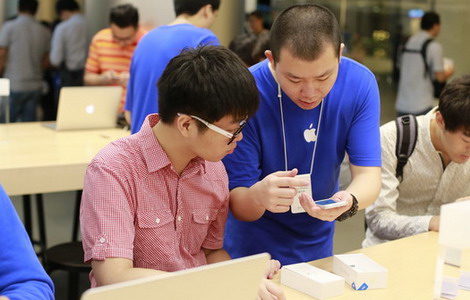
 iPhone 5s, iPhone 5c hit Chinese market
iPhone 5s, iPhone 5c hit Chinese market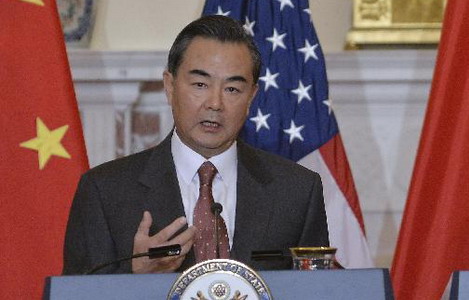
 China to play 'constructive' role on Syria: FM
China to play 'constructive' role on Syria: FM
 iPhone 5s, iPhone 5c hit Chinese market
iPhone 5s, iPhone 5c hit Chinese market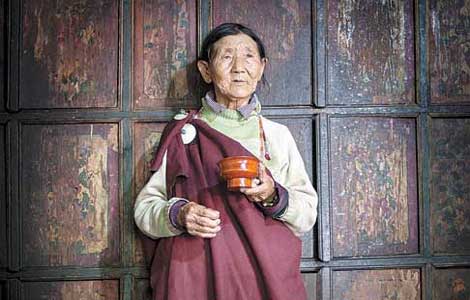
 Faces of Tibet
Faces of Tibet
 Full moon across China
Full moon across China
 Wearable technology, the new game-changer
Wearable technology, the new game-changer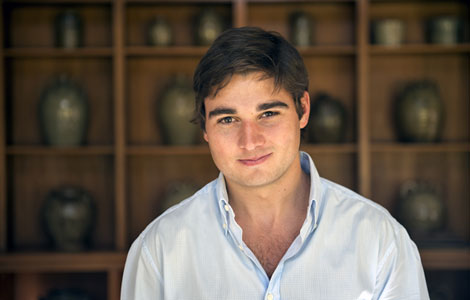
 Tapestry of Chinese culture and a Harvard teen's feeling
Tapestry of Chinese culture and a Harvard teen's feeling
 A simple but pure festival tradition
A simple but pure festival tradition
Most Viewed
Editor's Picks

|

|

|

|

|

|
Today's Top News
UN lauds China on food waste efforts
Chinese firms face trust deficit
13 injured in Chicago park shooting
Wang and Kerry meet in DC
Belgian zoo owner set to host Chinese pandas
Trending news across China
Fast-track process sees more NGOs
Beijing sends out positive smoke signals
US Weekly

|

|
